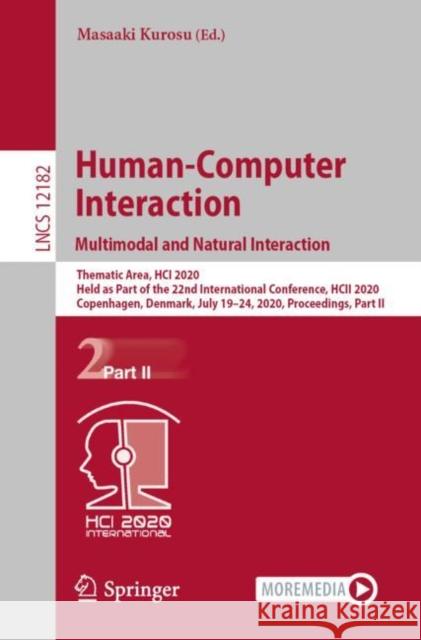Human-Computer Interaction. Multimodal and Natural Interaction: Thematic Area, Hci 2020, Held as Part of the 22nd International Conference, Hcii 2020, » książka
topmenu
Human-Computer Interaction. Multimodal and Natural Interaction: Thematic Area, Hci 2020, Held as Part of the 22nd International Conference, Hcii 2020,
ISBN-13: 9783030490614 / Angielski / Miękka / 2020 / 735 str.
Human-Computer Interaction. Multimodal and Natural Interaction: Thematic Area, Hci 2020, Held as Part of the 22nd International Conference, Hcii 2020,
ISBN-13: 9783030490614 / Angielski / Miękka / 2020 / 735 str.
cena 401,58
(netto: 382,46 VAT: 5%)
Najniższa cena z 30 dni: 385,52
(netto: 382,46 VAT: 5%)
Najniższa cena z 30 dni: 385,52
Termin realizacji zamówienia:
ok. 22 dni roboczych.
ok. 22 dni roboczych.
Darmowa dostawa!
Kategorie:
Kategorie BISAC:
Wydawca:
Springer
Język:
Angielski
ISBN-13:
9783030490614
Rok wydania:
2020
Wydanie:
2020
Ilość stron:
735
Waga:
1.03 kg
Wymiary:
23.39 x 15.6 x 3.84
Oprawa:
Miękka
Wolumenów:
01
Dodatkowe informacje:
Wydanie ilustrowane











